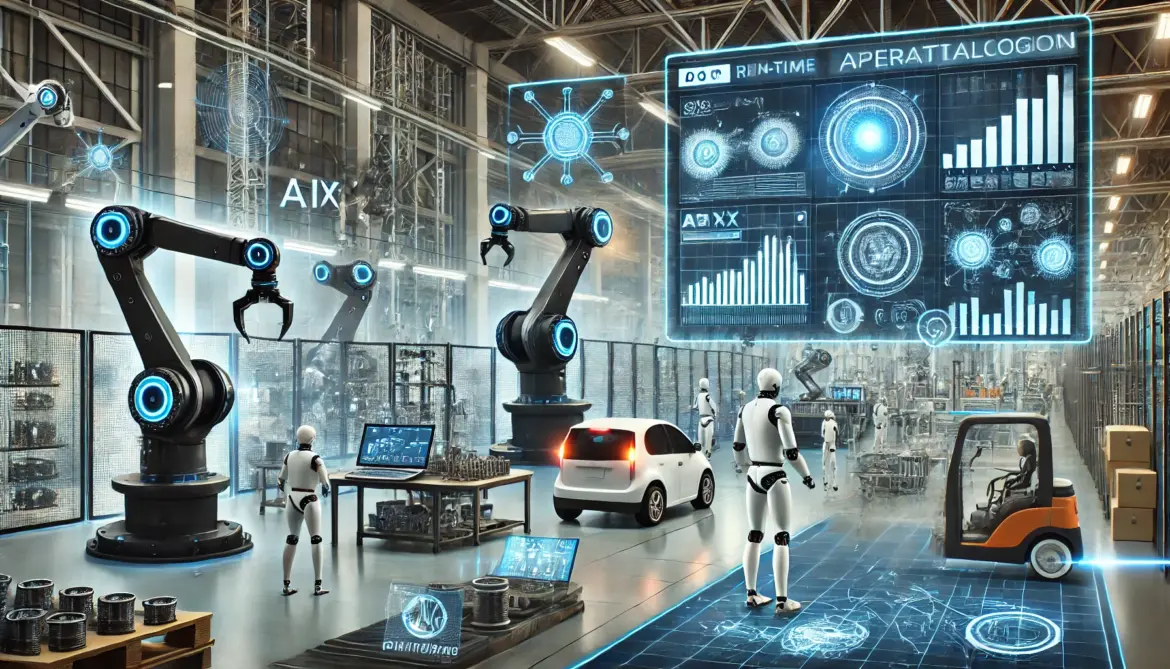What Is Automation in Modern Industries?
Automation has an impact on industries worldwide. It replaces tasks that humans used to do with cutting-edge tech and machines. From robots in factories to software that speeds up business processes, automation helps businesses work better. It makes tasks quicker and more precise. Also, it cuts costs and reduces errors, which leads to better productivity.
Different Types of Automation Technology
Automation comes in many shapes, and each industry uses it in its own way. Here are some of the most common types of automation tech:
- Robotic Process Automation (RPA) RPA software handles routine tasks like data entry or customer service questions. Healthcare, finance, and manufacturing industries use this tech to speed up processes and cut down on human mistakes.
- Industrial Robots Factories often use these robots for jobs such as assembly, welding, or packaging. These machines can work non-stop boosting productivity without needing breaks or rest.
- AI and Machine Learning AI and machine learning enable machines to improve from their experiences over time. This lets manufacturers foresee maintenance needs, ramp up production speed, and churn out higher-quality products.
- Programmable Logic Controllers (PLCs) PLCs are machines that control factory equipment. They automate assembly lines and packaging operations, which leads to smoother and more productive manufacturing.
- CNC Machines (Computer Numerical Control) CNC machines automate tasks like cutting, drilling, and shaping materials with pinpoint accuracy. They play a key role in industries that need exact machining such as metalworking and aerospace production.
Why Automation Has an Impact on Industries
Automation plays a key role for industries aiming to boost their performance. Here are some of the main advantages:
- Higher Productivity: Machines work faster and longer than humans resulting in more output in less time.
- Better Accuracy: Automation leaves less room for human mistakes, which results in more consistent product quality in manufacturing.
- Cost Savings: By using machines to do routine tasks, industries can cut labor costs while boosting their overall efficiency.
- Improved Safety: Robots can handle dangerous jobs that might put human workers at risk such as lifting heavy items or working with harmful materials.
How Different Industries Use Automation
Automation has an impact on various industries, with each one using the tech in its own special way:
- Manufacturing: Factories use automation a lot. Robots do dangerous jobs like assembly or heavy lifting. AI also helps to make supply chains run .
- Healthcare: In medicine, automation assists with robot surgeries, AI diagnoses, and patient record management. This boosts care efficiency and cuts costs.
- Logistics and Supply Chain: Automated systems track shipments, manage warehouse stock, and even deliver goods using drones and self-driving vehicles.
- Agriculture: On farms automated systems make planting, watering, and harvesting better. Precision farming tools use water and fertilizer , which leads to better crop yields.
Challenges of Using Automation
Automation brings many benefits, but it also has some drawbacks:
- High Initial Costs: Setting up automation can cost a lot for small companies. Machines software, and setup expenses can create a big hurdle.
- Integration Issues: Fitting automation systems into current business methods can be tough. Many firms need to hire experts to make sure everything works well together.
- Impact on Jobs: People often worry that automation might replace jobs those involving manual work. Yet many industries use automation to help workers, not replace them letting them focus on harder tasks.
The Future of Automation in Industries
As tech keeps moving forward, machines are getting smarter and more involved in different fields. Here’s what to keep an eye on:
- Smarter AI and Machine Learning: AI has an influence on automation systems making them better at deciding things on their own. This leads to improved process optimization.
- Autonomous Robots: Factories and warehouses will see more robots that work on their own without people watching them. This speeds up production and cuts down on costs.
- Internet of Things (IoT): IoT connects machines to the internet allowing them to share data in real time. This lets companies keep a closer eye on their operations and fix problems before they slow things down.
- 5G Networks: As 5G becomes more common, it will boost how fast and well automation systems work by helping machines and devices talk to each other more .
